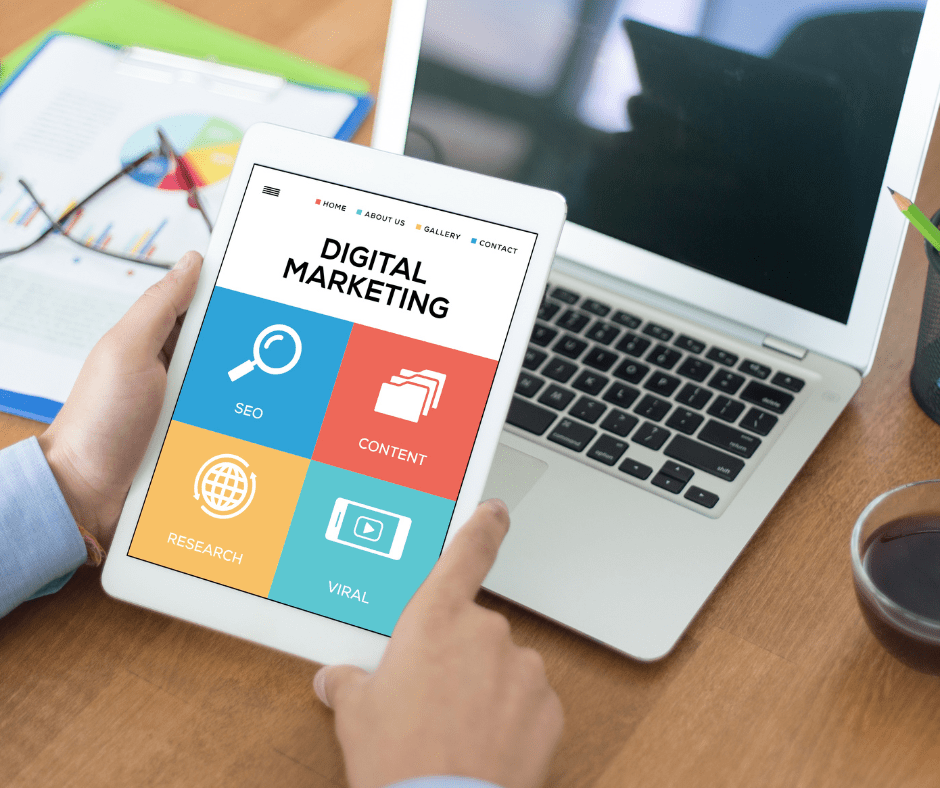June 5, 2023
Unveiling the Digital Marketing Trends of 2023: Staying Ahead in the Digital Landscape
Amanda Bidese

As technology advances at an unprecedented pace, the digital marketing landscape continues to evolve, presenting new opportunities and challenges for businesses. To thrive in this dynamic environment, it’s crucial to stay up-to-date with the latest trends and leverage them to create impactful marketing strategies. In this blog, we will explore the key digital marketing trends that are set to dominate in 2023, providing businesses with insights and inspiration to stay ahead of the curve.
Artificial Intelligence (AI) and Machine Learning:
Artificial Intelligence and Machine Learning are transforming the way businesses approach digital marketing. AI-powered chatbots and virtual assistants provide instant customer support and personalised experiences, enhancing customer satisfaction. Machine Learning algorithms analyse vast amounts of data, enabling businesses to optimise campaigns, improve targeting, and deliver more relevant content to their audience. Integrating AI and Machine Learning into digital marketing strategies can streamline processes, enhance efficiency, and drive better results.
Voice Search Optimisation:
The rise of voice-activated devices, such as smart speakers and virtual assistants, has led to a surge in voice search queries. Optimising content for voice search is crucial to meet the changing search behaviour of users. Businesses need to focus on long-tail keywords, conversational language, and providing concise and direct answers to voice queries. Voice search optimisation ensures that businesses remain visible and accessible to users, driving organic traffic and enhancing user experience.
Influencer Marketing Evolution:
Influencer marketing continues to evolve as both consumers and platforms adapt. In 2023, businesses will focus on building long-term relationships with influencers rather than one-off collaborations. Brands will seek influencers who align with their values and target audience, fostering authenticity and credibility. Micro-influencers, with their smaller yet highly engaged follower base, will also gain prominence. Furthermore, brands will invest in monitoring tools to evaluate the impact of influencer partnerships and measure return on investment (ROI).
Personalisation and Hyper-targeting:
Consumers now expect personalised experiences across all digital touchpoints. Hyper-targeting allows businesses to create tailored campaigns based on customer preferences, behaviours, and demographics. By leveraging data analytics and automation tools, businesses can deliver personalised content, recommendations, and offers. Personalisation not only increases engagement but also drives conversions and fosters customer loyalty.
Video Marketing Dominance:
Video marketing has been on the rise for years, and its dominance will continue in 2023. Video content captures attention, delivers messages effectively, and engages audiences on various platforms, including social media, websites, and email marketing campaigns. Live video streaming, interactive videos, and shoppable videos will become increasingly popular, enabling businesses to showcase products, provide behind-the-scenes glimpses, and interact with their audience in real-time.
Privacy and Data Protection:
With the growing emphasis on privacy and data protection, businesses must prioritise consumer trust and transparency. Adhering to data protection regulations, such as the General Data Protection Regulation (GDPR), will be crucial. Moreover, businesses will focus on gaining explicit consent for data collection, providing opt-out options, and ensuring secure handling of customer data. Building trust through responsible data practices will be a key differentiator for businesses in 2023.
Augmented Reality (AR) and Virtual Reality (VR) Experiences:
AR and VR technologies offer immersive experiences that captivate and engage users. Businesses can leverage these technologies to provide virtual try-on experiences, interactive product demonstrations, and virtual tours. AR filters and lenses on social media platforms enable businesses to create interactive and shareable content. Implementing AR and VR in digital marketing strategies can boost brand awareness, drive engagement, and provide a unique and memorable customer experience.
As digital marketing continues to evolve, embracing the latest trends is essential for businesses seeking to remain competitive and connect with their target audience effectively. The trends of 2023, including Artificial Intelligence, voice search optimisation, influencer marketing evolution, personalisation, video marketing dominance, privacy and data protection, and augmented reality experiences, offer tremendous opportunities for businesses to elevate their digital marketing strategies. By staying informed, adapting to changing consumer behaviour, and leveraging these trends, businesses can position themselves at the forefront of the digital landscape, drive engagement, build customer loyalty, and achieve long-term success in the ever-evolving world of digital marketing.